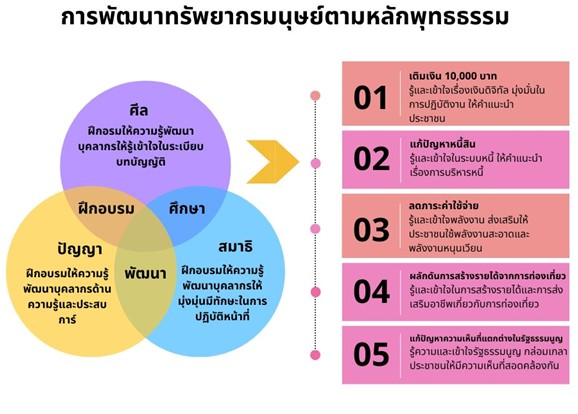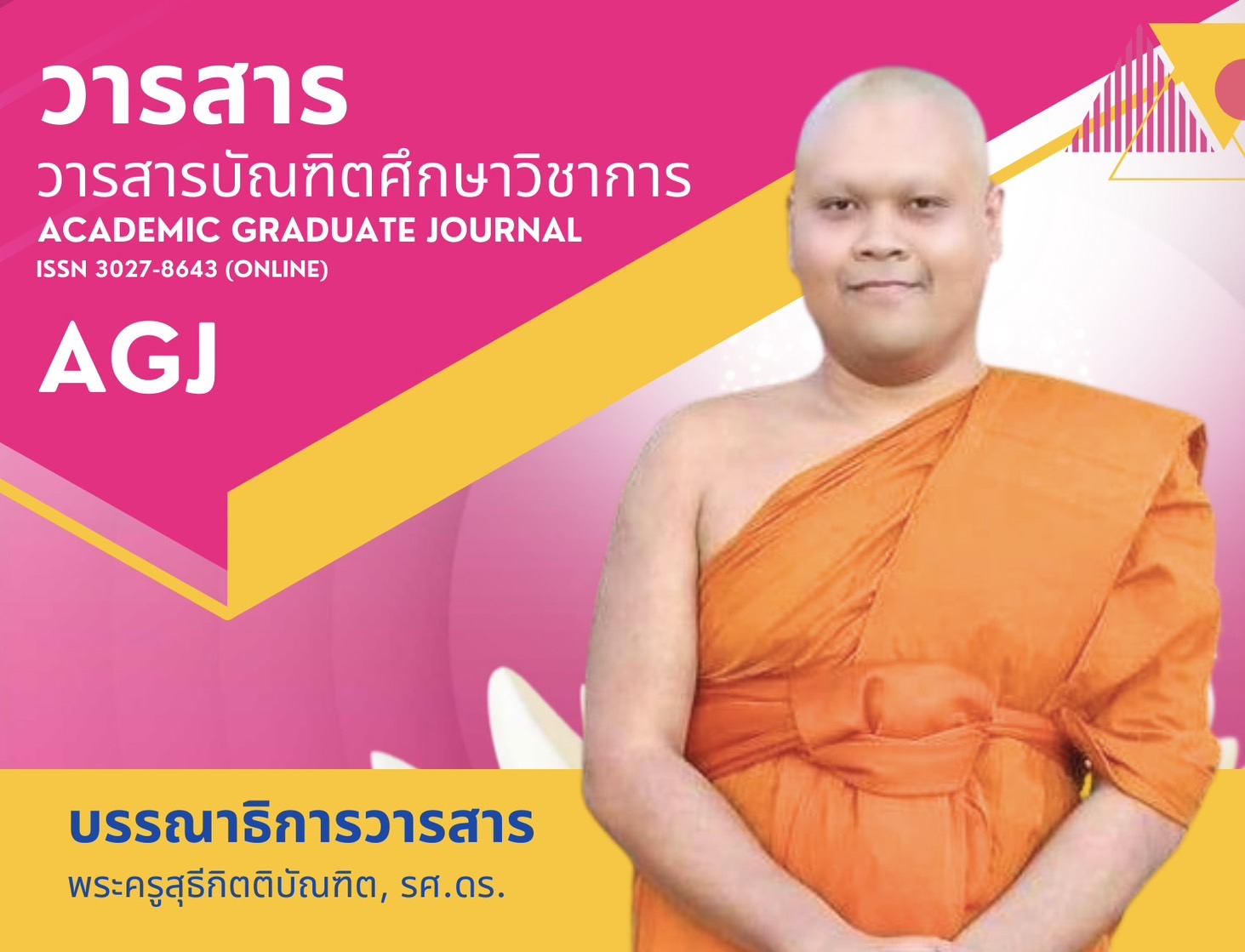URGENT POLICIES THAT WITH HUMAN RESOURCE DEVELOPMENT OF LOCAL ADMINISTRATIVE ORGANIZATION ACCORDING TO BUDDHADHAMMA
Keywords:
Urgent Policies, Human Resource Development, Local Administrative Organizations, BuddhadhammaAbstract
The objective of this academic article was to study urgent policies that with human resource development of local administrative organization according to Buddhadhamma. The government has announced 5 urgent policies to urgently solve people's problems. Local administrative organizations, as agencies that implement policies, should develop the potential of personnel to respond to urgent policies. The principles of integrated human resource development with the Tri-sikkha principles are as follows: 1. Policy of top up 10,000 baht, should train, provide knowledge and develop personnel to know and understand the regulations related to digital money, be committed to working, and help and advice to the public. 2. Policy of debt resolution, should train, provide knowledge and develop personnel to know and understand the debt system, provide advice and provide knowledge to the public. 3. Policy of reducing the burden of expenses, should train, educate and develop personnel to know and understand about the use of clean energy and renewable energy, and encourage people to use clean energy and renewable energy to reduce expenses. 4. Policy of promoting income generation from tourism should provide training, knowledge and development of personnel to have knowledge and understanding in generating income and promoting careers related to tourism, preserving arts, culture, traditions and local wisdom. 5. The policy of resolving differences of opinion in the constitution should train, educate and develop personnel to have knowledge and understanding of the constitution, related provisions, and aim to promote and cultivate people to have consistent opinions.
References
โกวิทย์ พวงงาม. (2550). การปกครองท้องถิ่นไทย. กรุงเทพฯ: บริษัทสำนักพิมพ์วิญญูชน จำกัด.
พะยอม วงศ์สารศรี. (2540). การบริหารทรัพยากรมนุษย์. กรุงเทพฯ: คณะวิทยาการจัดการสถาบันราชภัฎสวนดุสิต.
พุทธทาสภิกขุ. (2529). เรื่องเกี่ยวกับการปฏิบัติธรรม. กรุงเทพฯ : จักรานุกุลการพิมพ์.
มหาจุฬาลงกรณราชวิทยาลัย. (2539). พระไตรปิฎกฉบับภาษาไทย ฉบับมหาจุฬาลงกรณราชวิทยาลัย. กรุงเทพฯ: โรงพิมพ์มหาจุฬาลงกรณราชวิทยาลัย.
รัฐบาลไทย. (2566). คำแถลงนโยบาย ของคณะรัฐมนตรี นายเศรษฐา ทวีสิน นายกรัฐมนตรี แถลงต่อรัฐสภา. วันจันทร์ที่ 11 กันยายน 2566. สืบค้น 10 เมษายน 2567, จาก https://www.thaigov.go.th/news/contents/ details/72078.
สำนักงานคณะกรรมการข้อมูลข่าวสารของราชการ. (2567). ภารกิจ อำนาจ หน้าที่. สืบค้น 10 เมษายน 2567, จากhttps://www.oic.go.th/FILEWEB/CABINFOCENTER29/DRAWER037/GENERAL/DATA0000/00000002.PDF.
สำนักประชาสัมพันธ์สำนักงานเลขาธิการสภาผู้แทนราษฎร. (2540). รัฐธรรมนูญแห่งราชอาณาจักรไทยพุทธศักราช 2540. กรุงเทพฯ: สำนักพิมพ์สำนักงานเลขาธิการสภาผู้แทนราษฎร.
อัจฉรา สังข์สุวรรณ. (2559). การบริหารงานบุคคล. กรุงเทพฯ: เทพรัตน์เพรส.
Beach, D.S. (1980). The Management of People at Work. New York: The Macmillan Publishing Co.
Edwin, F.B. (1971). Management: A Behavioral Approach. Boston: Allyn & bacon. United States: Allyn and Bacon Inc.
Gilley, J.W. et al., (2002). Principle of human resource development (2nd Ed.). Cambridge, MA: Persues Books
Megginson, L.C. (1969). A Behavioral Approach to Administration. Omewood: Richard D Lrwin.
Leonard, N. (1980). Corporate Human Resources Development: A Management Too. United State: McGraw-Hill.
_________. (1982). Designing training program: The critical events model. New York: Taylor & Fracis group.
Pace. RW. Smith. (1991). Human Resource Development. New Jersey: Prentlice Hall.







